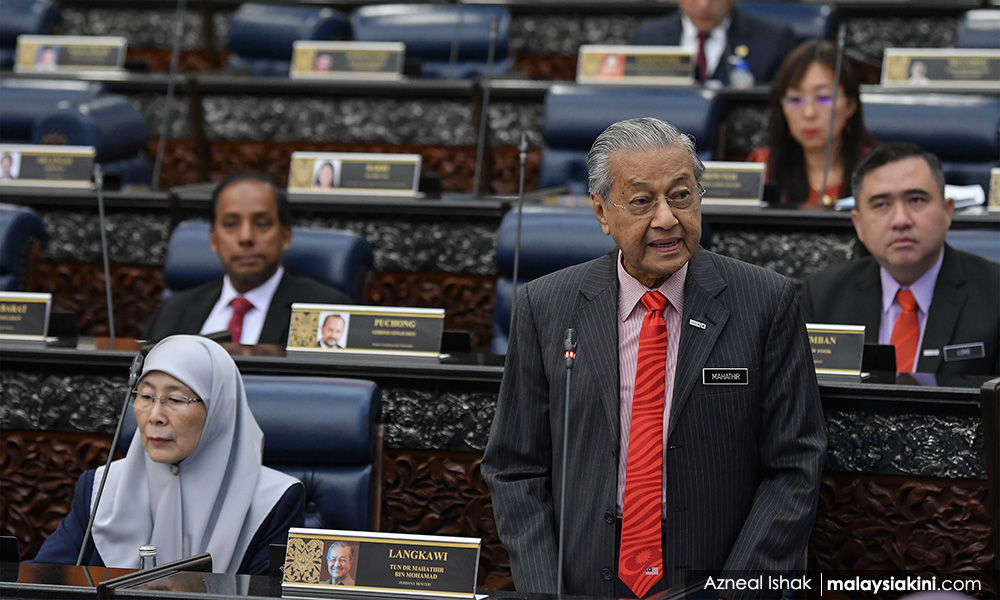
The addition of 13 state seats in Sabah will benefit the people, especially in obtaining more efficient and effective services from elected representatives, says Prime Minister Dr Mahathir Mohamad (photo, above).
He said it would also improve the standard of living and boost development in the state.
"The increase in the electoral districts will also be able to raise the level of service rendered to the locals by elected representatives, especially those in those districts (which have just been added), and it will make it easier for the people and residents to interact and discuss matters relating to the welfare of the people," he said when tabling the Bill on redelineation recommendations for Parliamentary and state constituencies in Sabah in the Dewan Rakyat today.
Dr Mahathir said the Sabah State Assembly had previously passed the amendment to Clause (2) of Article 14 of the Sabah Constitution on the composition of seats in the state assembly from 60 to 73 seats that took effect on Aug 18, 2016.
He said the Election Commission (EC) had completed the redelineation review report which was handed over to former prime minister Najib Razak on Feb 21, 2017, but it was not proposed to be tabled in Parliament at the time.
Mahathir said the EC had resubmitted the report to him on June 26, 2018, which was then distributed to all MPs.
He said the EC recommended a total of 13 additional sections, namely Bengkoka, Bandau, Pintasan, Pantai Dalit, Darau, Tanjung Keramat, Limbahau, Tulid, Telupid, Sungai Manila, Lamag, Segama and Kukusan.
Also recommended were changes in names of one Parliamentary constituency in Sabah, namely P188 Silam to Lahad Datu), and three state constituencies - N17 Tanjong Aru to N22 Tanjung Aru; N50 Lahad Datu to N62 Silam; and N59 Tanjong Batu to N71 Tanjung Batu.
He said the EC considered various factors in conducting the redelineation exercise, including population density and voter growth, geographical conditions, terrain and area of the constituency, as well as people’s access to the elected representatives.
"One thing I would like to emphasise here is that a somewhat equal division of the number of registered voters in all Parliamentary and state constituencies in Sabah is quite difficult to implement as there are rural areas where the topography and demographic conditions differ greatly from one another," he said.
- Bernama



No comments:
Post a Comment
Note: Only a member of this blog may post a comment.